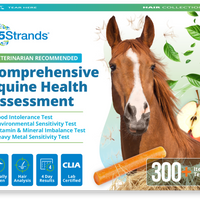Gut Health, Brain Health, Food Intolerances, Allergies… What are they and how are they related? Most people grow up believing that they have food allergies, but rarely do they learn ABOUT INTOLERANCES. Allergies are the histamine reactions that occur with consumption of certain foods; however they must be diagnosed by providers after symptoms are clinically evaluated and treated with medications (usually antihistamines and steroids).
The core of this article is understanding food intolerances, which are the body’s physiological responses to foods that are mismatched to its energy patterns and needs. If a person has food intolerances, they can affect not only the digestive processes, but how the brain or command center of the body works to process the nutrients found in foods. This process is known as methylation (where a molecule called a 'methyl group' is added to DNA or proteins in the body, so the substance receiving the methyl group is able to function in the body).
If methylation doesn’t happen properly, then health conditions can arise. The simplest way to describe this is to think of the brain as the command center to a large biological computer. If the brain doesn’t have the appropriate data, it will not be able to send out the right commands to the various operating systems.
Symptoms of Food Intolerances:
Lethargy, Tiredness, and Insomnia:

This is not the simple tiredness that a person feels at the end of the day, rather, it is the deep seated tiredness that plagues people, making them feel as if they can’t go on with daily activities. This is usually attributed to the body not being able to absorb certain nutrients and also methylation or brain-based health.
Irritability or Emotional Dysregulation: Irritability is defined as a person’s internal and emotional responses to thoughts, behaviors, or actions that are not aligned with their expectations. Emotional dysregulation is where a person cannot effectively regulate these emotions and feel emotions to the extreme, in situations that would not normally warrant them. Emotional dysregulation is linked to hormone imbalances, stress, and gut health.
Weight gain or loss, Clinical obesity: Unplanned weight gain or loss, or clinical obesity happens over time and, aside from overindulgence, is the body’s BEST indicator of food intolerances. When a person cannot digest their food properly, valuable nutrients are either voided or converted to fat and stored. Weight changes are usually attributed to gut health.
Headaches: Headaches generally arise from the body’s reaction to stress, blood pressure changes, hormone issues, or atmospheric pressure. The first three are related to how the body digests food, the allostatic load a person carries, and methylation issues.
Seizures: When a person has seizures, the medical community looks to organic or physiological conditions, i.e. brain abnormalities. Then they look for neurochemical challenges. Finally, they will look at how the brain adapts to stress. The last two are food dependent and can be attributed to food intolerances.
Bloating and Upset Stomach: Bloating and an upset stomach are directly related to food intolerances and how the body can digest food. More often than not, bloating is related to the gas by-products of digestion. This is most often seen with sugar, dairy, and various grain intolerances, or challenges with proteins and enzymes.
Skin irritations:

The skin is one of the most important organs in the body, and it is tasked with being the body’s first line of defense. There are many things which can cause skin irritations, including fungal infections, sunburns, etc.; but food intolerances can show up as unexplained rashes without elevated histamine levels. Most people describe them as flaky skin, dry patches, or hard white bumps. These intolerances are symptoms that are often misdiagnosed as autoimmune disorders and can be reversed with individualized diets.
Unexplained joint and muscle pain: Unexplained pain is the MOST overlooked reaction to a food intolerance. Indeed, many people with grain intolerances endure chronic pain, because the body’s autoimmune system perceives these items to be subtle threats. These reactions are often diagnosed as allergic reactions or forms of arthritis, but in reality, they are more than likely methylation issues. They can also arise from a situation where the body lacks the enzymes or has the inability to produce the enzymes necessary to digest these foods.
Chronic inflammation: Chronic inflammation is the “catch term” like idiopathy, which basically states that a doctor doesn’t know why something happens in the body. It is easier to create a label of chronic inflammation and treat symptoms with medications rather than look to potential food intolerances being the cause.
Temperature regulation: Temperature regulation is controlled by the pituitary and thyroid, and it is directly related to food intolerances. If the body is not able to absorb or use the right amino acids, the brain is not able to tell these endocrine controls which hormones to release.
Diagnosing Intolerances with 5Strands Testing Kits
The 5Strands Food Intolerance and Nutrition Test Bundle results are uniquely designed to provide a simple plan for consumers to identify and make changes to their diets. By the process of elimination, they may immediately “feel” improvements, and later with reintroduction, learn which foods cause inflammation by understanding the relationship between food additions and symptoms. These results also can provide in-depth answers to these challenges and more, if a practitioner is trained to overlay the data points between the foods, nutrients, and metals and minerals tests.
While consumers can simply make changes to their diets, trained practitioners can see vitamin imbalances, food intolerances, and metals and minerals that could accumulate in the body. All of these indicators of potential dietary micros and macros can affect gut health, neurotransmitter imbalances, and overall functioning of the central and autonomic nervous systems.
When people have complex medical diagnoses including Type II Diabetes or other Endocrine disorders, Chronic Fatigue Syndrome, Hypo or HyperThyroidism, Multiple Sclerosis, various Arthritis, or other Metabolic Disorders; they do not have to rely upon a physician to tell them how to “live” with a diagnosis and take medications. They can take charge of their health, use the 5Strands test results to learn what their bodies need, and then make the necessary changes for total lifestyle wellness. If they still have challenges after making the necessary changes, they can look deeper through hormone, neurotransmitter, and functional DNA testing.
5Strands test results ARE the gateway to better health.





























